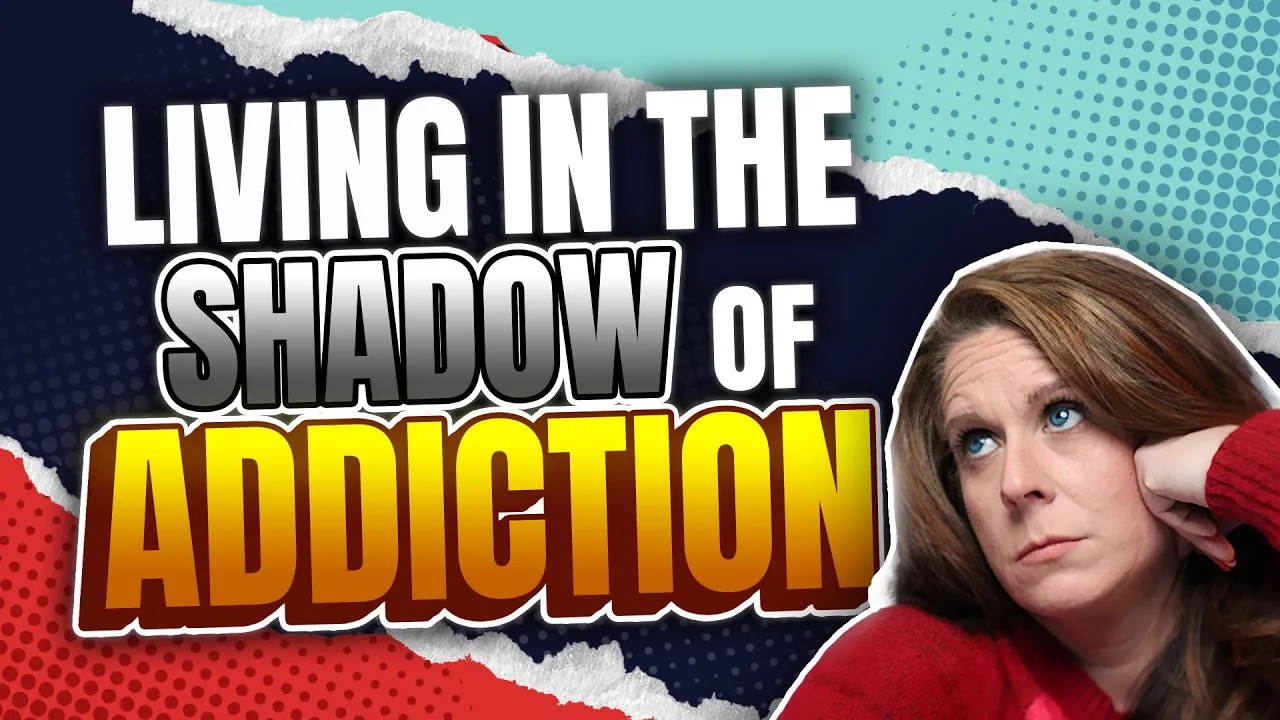Overwhelmed by Your Business? How Alcohol Can Be Your Worst Enemy
The Hidden Struggle: Why Entrepreneurs Are at High Risk for Alcohol Use Disorder
Nearly 15 million people in the United States struggle with an alcohol use disorder, and entrepreneurs are particularly vulnerable. The journey of building a business is exhilarating, but it comes with intense pressure, high stress, and often, a culture that normalizes drinking. If you’re an entrepreneur who finds yourself reaching for alcohol to unwind, you’re not alone—but there is a way out.
The High-Stress Reality of Entrepreneurship
Starting and running a business is more than just a job; it’s a lifestyle. Entrepreneurs don’t have the luxury of clocking out at 5 PM. Instead, they’re constantly thinking, strategizing, and problem-solving. The responsibilities are immense:
-
Financial Burden: Not only does your family rely on you, but your employees and their families do too.
-
High-Stakes Decision Making: Every choice could make or break your business, often with no one to guide you.
-
Is...
A Story of Hope & Heartbreak | An Opioid Addiction Special
What Happens When the Person You Love Most Loses Themselves to Opiate Addiction?
Losing someone to opiate addiction is a heart-wrenching experience—especially when that person is your partner, your confidant, the one you vowed to stand by through thick and thin. In this post, we explore the unique challenges and emotional turmoil faced by those who love someone battling opioid addiction. Whether you're just starting to notice signs or have been grappling with this crisis for years, understanding the insidious nature of opiate addiction can be the first step toward reclaiming your life and protecting your family.
Understanding the Hidden Nature of Opiate Addiction
One of the most perplexing aspects of opioid addiction is its ability to hide in plain sight. Unlike other addictions, the early stages of opiate dependency can be deceptive:
-
Subtle Behavioral Changes:
Many people assume that if someone isn’t visibly intoxicated, there’s nothing to worry about. With opiate addictio...
What No One Tells You About Having an Addicted Sibling...
When Your Sibling is Addicted: A Different Kind of Heartbreak
Most discussions about addiction focus on the perspective of the person struggling or their immediate family—typically a parent or spouse. But today, we’re shifting the lens to an often-overlooked perspective: the sibling of an addicted person.
Having a brother or sister battling addiction is a completely different experience. Your response, emotions, and challenges are unique compared to those of a parent or spouse. Whether you grew up with an addicted sibling or their addiction emerged in adulthood, the impact on you is profound.
As a seasoned addiction counselor and someone who comes from a family with addiction, I understand this firsthand. I’ve avoided this topic for a long time because of its deeply personal nature, but today, we're diving in.
The Unique Challenges of Having an Addicted Sibling
Every sibling relationship is different, but addiction throws in additional layers of complexity. Your experience may b...
Do Addicts Mean The Hurtful Things They Say?
Do Addicts Mean the Hurtful Things They Say? Understanding Addiction and Empathy
Have you ever wondered, Do addicts mean the hurtful things they say? If so, you’re not alone. This is a question I recently received from a viewer, and I know many of you may be struggling with the same concern.
So, let’s break it down—do they mean it? The answer is yes, no, and sometimes. Confusing, right? Let’s dive deeper so you can understand when they mean it when they don’t and why addiction often seems to strip away empathy.
How Addiction Affects Thoughts, Emotions, and Behavior
People in active addiction are often operating from a place of intoxication, desperation, or defensiveness—and all three can impact what they say and how they act. Understanding these states can help you make sense of their words and behavior.
1. Intoxication: Truth, Distortion, and No Filter
Substances like alcohol and drugs alter brain function, making it hard for a person to regulate their emotions and thoughts.
...Boundaries 101: How to Love an Addict Without Burning Out
Setting Boundaries with a Loved One Struggling with Addiction: Avoid These 3 Common Mistakes
Loving someone with an addiction is incredibly difficult and heartbreaking. Of course, you want to help them, but you also have to protect yourself. And as you probably already know, that can be very, very challenging. Keep reading to discover crucial tips on avoiding the top three most common boundary mistakes—and what to do instead.
These top three boundary mistakes might not be what you’re expecting, so stay with me—there’s logic behind them.
Boundary Mistake #1: Setting Too Many Boundaries
When you love someone with an addiction, their substance use impacts not just them but you, too. It’s completely natural to want to control their behavior in an attempt to shield yourself from the chaos. This often leads to setting too many boundaries—rules about what they can and cannot do, expecting them to comply.
But here’s the catch: boundaries are about what you will and won’t accept, not a...
The Truth About Alcohol and Anxiety: Breaking the Cycle
The Truth About Alcohol and Anxiety: Breaking the Cycle
For many of us, a drink at the end of a hard day feels like the easiest way to unwind. Whether it’s a couple of cocktails after work, a glass of wine to pair with dinner, or a weekend toast with friends, alcohol often becomes the go-to solution for stress and anxiety relief. But here’s the thing—while it might feel like alcohol calms your nerves in the moment, it’s actually setting you up for more anxiety in the long run.
I know that’s not a popular message but stick with me. I’m going to explain the science behind why alcohol isn’t the anxiety cure it seems to be and how it can actually make things worse. Trust me, you’ll want to understand this if you’re serious about breaking free from the anxiety-alcohol cycle.
Why Alcohol Feels Like It Helps (At First)
When you take that first sip of alcohol, your brain gets a temporary “chill pill.” Alcohol is a central nervous system depressant, which means it slows things down in you...
Getting Past Alcoholic Defense Mechanisms
How to Break Through Defensiveness: Proven Techniques for Overcoming Resistance in Conversations
Breaking through defensiveness can feel like an uphill battle, especially when you’re trying to address sensitive topics like addiction or personal growth. Whether you're speaking to a loved one or even confronting your own resistance, understanding how to navigate these interactions is key to making progress. In this post, I’m sharing my top strategies for reducing defensiveness, honed over 20+ years as a Master Addiction Counselor.
Why Defensiveness Happens
Defensiveness often happens when someone feels criticized, judged, or pushed into a corner. Even well-intentioned conversations can trigger this response. If you’ve ever brought up a concern only to be met with excuses, counterarguments, or blame-shifting, you’ve experienced the roadblocks defensiveness creates.
The good news? With the right approach, you can disarm defensiveness and foster meaningful, open dialogue.
The #1 Te...
Crazy? This Is Why Loving an Addict Feels Like You're Losing Your Mind
Loving an Addict: How It Impacts You and How to Take Back Control
Loving an addict or alcoholic can make you feel like you're losing your mind. While "crazy" may not be a clinical term, it's the only word that captures the emotional chaos so many of us experience in these situations. You lose yourself, your sense of stability, and sometimes, even your identity. If this resonates with you, know you're not alone—and you're in the right place.
I’m Amber Hollingsworth, a master addiction counselor with over 20 years of experience. On my YouTube channel, I aim to help families navigate the impact of addiction. We will unpack the emotional toll of loving someone with addiction, the mental rollercoaster you’re on, and—most importantly—how to start reclaiming your sanity.
The Emotional Rollercoaster
When you're closely connected to someone struggling with addiction, your emotional brain (your limbic system) syncs up with theirs. It's almost magnetic. Ever notice how being around anxiou...
When Is "Moderation" More Than Moderation? Signs You Might Be Crossing The Line
 Gray Area Thinking: Understanding Addiction on the Spectrum
Gray Area Thinking: Understanding Addiction on the Spectrum
Addiction isn’t a one-size-fits-all situation. It exists on a spectrum, with a gray area between casual use and full-blown addiction. This "gray area thinking" is where many people find themselves—not sure if their substance use is problematic, yet not identifying as an addict or alcoholic. If that resonates with you, you’re in the right place.
In today’s blog, we’ll explore gray area thinking, how it differs from gray area drinking, and what you can do if you’re navigating this confusing middle ground.
Signs of Gray Area Thinking
Gray area thinking often involves conflicting feelings about your substance use. You may:
- Vacillate between concern and dismissal – You promise yourself to cut back but later convince yourself it's not a big deal.
- Avoid discussing your substance use – Fear of judgment or pressure to change makes you reluctant to open up.
- Experience negative impacts – Your substance use may not dominate you...
People Tried Something Unexpected For Addiction... Here’s What I Think
Could Ozempic Be the Key to Tackling Addiction?
You’ve probably heard all the buzz about Ozempic, hailed by many as a breakthrough weight-loss drug. But did you know its active ingredient, semaglutide, might also hold promise in a completely different area—addiction? That’s right, folks are buzzing about its potential to curb addictive behaviors, and while there’s no published research on it just yet, the anecdotal evidence is piling up. Let’s dive in.
From Weight Loss to Addiction Control?
Semaglutide works by mimicking a hormone that helps you feel full faster, which is why it’s so effective for weight loss. But here’s where things get interesting: countless users on platforms like Reddit are claiming that the drug has unexpectedly helped them reduce or eliminate other behaviors, from drinking and smoking to compulsive shopping and even skin-picking.
While these are just personal stories (not hard science), the consistency of these experiences is enough to make you wonder—cou...









